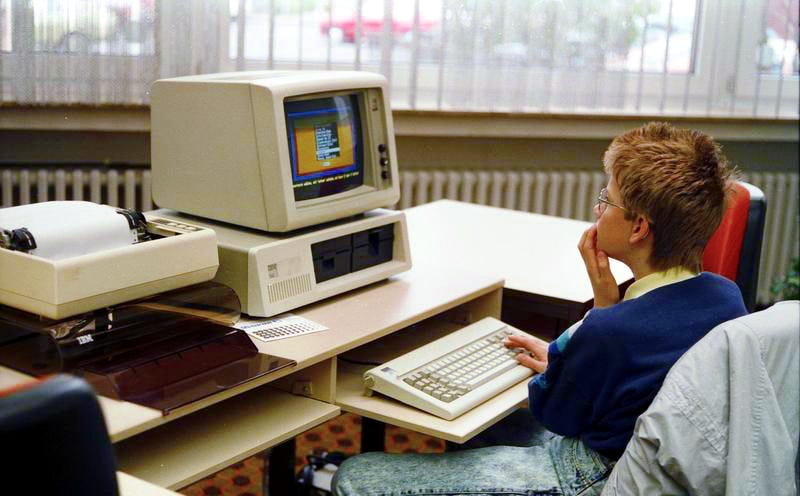Please don't forget the Youth!
Pandemic, War in Ukraine, Inflation, Climate Change - How can one stay optimistic in the midst of crises?

It’s almost exactly five years ago that Covid-19 hit Europe and Germany which led to the first of multiple lockdowns. The youth, including me, was hit hardest. Schools were shut down, meeting friends was forbidden, cinemas and other leisure time facilities were closed, traveling wasn’t as easy, a proper nightlife was nowhere to be found. In a time which is so important for the identification process, we were told to stay home instead of going out, exploring the world and finding ourselves. For the most part, we followed and understood those measurements to protect the elderly and our most loved ones - those who built up the country that we grew up in.
War, Inflation and Cost of Living Crisis
The pandemic was part of our life for two years and as soon as it was over, the next crisis hit. Russia invaded Ukraine, bringing a war into the centre of our attention - the centre of a generation who grew up in peace. With the war came the energy crisis and inflation which ate our money. Eating out, traveling, moving out from the parent’s house - everything became more expensive.
In 2023 (most recent numbers), more than every fifth child (23,9%) and teen under the age of 18 was at risk of poverty or social exclusion. Of all the students (and apprentices) - even those who live with their parents - 35% (18%) are at risk of poverty. If you only account for those who live alone or in a shared apartment with other students/apprentices, it is 77% (!!!!) and 54% of students/apprentices who live under the poverty line. The poverty line is defined as 60% of the mean net income (1,314€ in 2023). For comparison: In the whole German population, about 14% of people were below the poverty line.
It is especially the costs of housing which are eating up our money. On average, students spent 54% of their disposable income on housing costs, apprentices 42%. Overall, the German population spends on average 25% of their disposable income on housing costs. 61% of students and 47% of apprentices are experiencing overburdening, i.e. that even after transfer payments they pay more than 40% of their disposable income on housing. Overall 13% of Germans are experiencing overburdening on housing costs. 61% of teens and young adults between 14 and 29 years are worrying about inflation, 54% about high housing costs and 48% about poverty in old-age.
Stress and Depression - Still room for optimism?
Half (51%) of the young adults are experiencing stress, more than a third (36%) exhaustion and 17% feel helplessness. More than every tenth (11%) young adult is in therapy because of mental health issues. Yet, teens and young adults are still rather optimistic - even if it’s less than it used to be. Compared to 2019 (58%), in 2024 52% were looking optimistically towards their own future. What’s fascinating: Young people from the lower socio-economic class are becoming more optimistic (47% vs. 45% in 2019 and 32% in 2015) while the upper class becomes less optimistic about their own future (55% vs. 76% in 2015).
The big crises of today are hitting young people the most. We will be the ones who will experience the consequences of climate change the most, we are worrying about our pension not being secured and we would be effected if compulsory military service gets reinstated. We are experiencing underfunded and outdated education facilities. We want to be seen, heard and understood as we want to take responsibility in this society - which is also given in the increasing interest in politics (50% in 2024 vs. 30% in 2002). But we don’t want to do so under the circumstances we are given.
In a world full of crises, conservative and right-wing politics which look backwards aren’t the right way to secure our future. Austerity policies are everything but fair for the younger generation! We won’t have a better future just because of a low debt ratio. We need a country that actually functions. Money isn’t short, so we need to invest it into the future. Hence, the reform of the debt brake and the special fund for infrastructure - agreed on by CDU/CSU, SPD and Greens, are a step into the right future. But in the long term, we need to change the debt brake in a way that it doesn’t ever limit the government again from doing necessary investments into the future of our country.
Yet, politicians, like our future Chancellor Friedrich Merz, are telling us that we just need to work more to secure our wealth and are putting the blame of economic problems on the individuals who already have the least. Neither is this helping the actual problems, nor the climate in our society. Instead we want policies which actually tackle the problems of our time, improve our quality of life and give us reason to look optimistically into the future. In general, politicians need to get rid of the idea to only think in legislative periods and start thinking about the long-term future. Young people are hurt the most by short-term and status-quo politics as we will experience the consequences of them the most. So, please, dear politicians, start thinking about your children and grandchildren. Go talk to them, listen to their concerns and try to ensure a better future for them, also by allowing them to help shape it.



